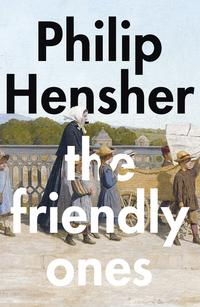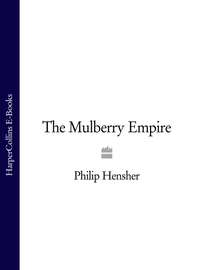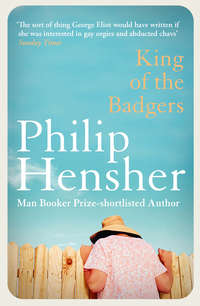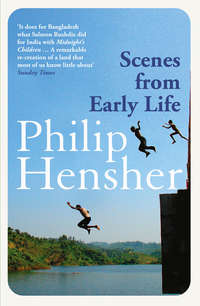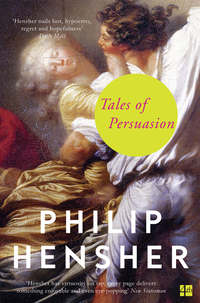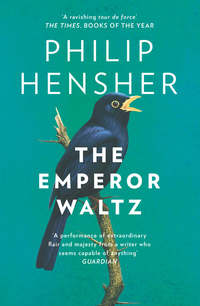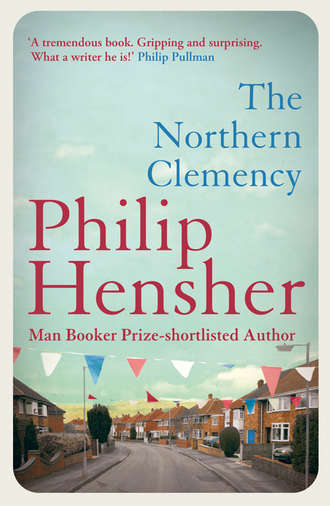
Полная версия
The Northern Clemency
Jane suddenly thought how unwise this idea had been, to turn up without warning her mother. What if – her novelist’s imagination creaked into gear and saw, clear as anything, her mother and a young lover, a David Cassidy perhaps, embracing and kissing in a bower of flowers in the shop window. But it could not be helped now. For some unspoken reason, they did not cross the road. Over there, the flower shop’s awning, pink and domed, the only one sheltering the Broomhill street, like a flushed, guilty, cross and bad forehead, and, inside, a figure, two figures, moved, gathering, circling, busy.
They stood opposite, watching. Jane clutched her bag. ‘Let’s—’ she said feebly, but it was too late. They had been seen. The figures had paused as if surprised, then one came to the broad window, resolving its dark outline into her mother, not bearing the surprised, suspicious expression Jane had envisaged, but a flash of uncustomary delight as the other figure came up behind her. Jane raised her arm to wave, but was arrested by an insight as she took in the worried face beside her mother.
It was Anne’s insight, too. ‘But he’s old,’ she said. ‘I thought—’
‘What did you think?’ Jane said, snapping a little. She already felt defensive about this man.
‘He doesn’t look like anyone’s lover,’ Anne said.
‘I never said he was,’ Jane said irrationally. She didn’t need to come closer: she somehow knew what this man was like, better than her mother could, and she could surely see that what animation he possessed was a matter of sparks thrown off by a chill and flinty interior. She was right: Nick had aspects of fire, could briefly blaze, but they were mere sparks, giving little light and no heat, capable only of a short spectacle, of the casual infliction of harsh smarts on anyone standing by, foolishly admiring.
As for Nick: he ran that shop for another ten years. But whenever he looked out of the shop window and saw someone, two people, on the opposite side of the road, inspecting his façade, he always felt that same sudden way. He always felt the same as he did that first afternoon. And then, they were only two schoolgirls.
‘It’s my daughter,’ Katherine said. ‘And her friend. They never said.’
‘Ask them in,’ Nick said.
It had been eighteen months or so before when Nick and Jimmy had had the idea. They’d been in Jimmy’s new house in Fulham. Jimmy said Chelsea, though it was really Fulham. Miranda, Jimmy’s wife, certainly said Chelsea. She was as decisive about that as she was about the fact that Nick, and Jimmy’s other not very desirable but probably useful colleagues could be offered drinks at five thirty, but shouldn’t expect to stay for dinner. Colleagues! Ha! After all, the nanny’d be bringing little Sonia in her best dress down for dinner: a nice thing – as Miranda said, voice rising – if she grew up mixing with people like Nick.
‘You won’t have any difficulty finding a taxi on the street,’ Miranda would say, drifting through and interrupting their conversation. ‘This is Chelsea, after all. It’s not, it’s not fucking, what, Streatham or somewhere.’ Miranda’s hair curled out in a single wave backwards about her features. She’d flick it back, give Nick or whatever-his-name-was a level stare, her mascaraed or false eyelashes held painfully apart, go to the bamboo-fronted bar, and, with leisurely disdain, mix herself a Dubonnet and gin, three fat ice cubes and a straw, before returning to the kitchen to shout at Solange, the put-upon au pair, acquired, like so much else in this house, in one of Jimmy’s fits of sexual ambitiousness, and now hanging around, disappointing him and annoying Miranda.
The house in Fulham was a step up from the two-bedroom flat in Islington. The money had been flooding in so fast that Jimmy had had a job knowing what to do with it, keeping it in fat bundles (he’d once confided) in a painted oak chest under little Sonia’s bed and taking it out periodically to press it into the hands of shop assistants. The results – a pair of gold-tasselled sofas glowering at each other across the drawing room like a pair of retired rival strippers, a whole pack of waist-high china hounds glistening throughout the open-plan living area, vast surfaces of built-in brown smoked mirrors, ankle-high white shagpile and two at least of those horrible leather rhinoceroses you saw in Liberty’s. The results all bore something of the bewilderment of the moment of their liberation, as Jimmy brought out a wad of crinkled fivers and counted out several dozen of them in a more than respectable shop. He’d have paid cash for the house if he could; as it was, he was reduced to transferring it from bank to bank to bank first. Nick put the money Jimmy handed over irregularly but lavishly into a bank account and worried about that all the time, though it wasn’t an account in his own name.
‘I’m fed up of it,’ Nick had said. ‘I’ve done this too often. I’m getting too old for it.’
‘No reason why you can’t go on for ever,’ Jimmy said. He stretched out in his armchair – a vast leather job, like an intricate wooden puzzle in its manoeuvrability of parts, given to strange hummings and shiftings at Jimmy’s fingertip command. He looked as if he might stretch out his arm for, what?, an august cigar. Or just another whisky to go with the one nestling in his fat groin.
‘I don’t like it,’ Nick said. ‘I’ll do it one more time, I promised, but that’s it. I’m too old for it, you’ve got to find someone else to help us out.’
‘The older you get,’ Miranda said, wandering in – she’d been listening through the serving hatch, ‘the better you get at it. More believable. No one’s looking at you. When you’re bald and seventy—’
‘Thanks, darling,’ Jimmy said. ‘Now go and—’ He flicked parodically in the air, readjusting an imaginary blonde hairdo, not taking his eyes off Nick.
‘Fuck off,’ Miranda said, not aggressively, but she went.
‘Silly bitch,’ Jimmy said.
‘How hilarious,’ Nick said.
‘Hilarious,’ Jimmy said. ‘Unless you’re married to it.’
‘She’s all right, Miranda,’ Nick said.
‘I know,’ Jimmy said, and it was his voice rising now. ‘I wouldn’t. Have her any. Other way. But what are you saying?’
‘Nothing, I suppose,’ Nick said.
They sat there for a moment. Jimmy got up and refilled his glass, a heavy crystal pail. It might have been chosen for its effectiveness when thrown in marital rows. He didn’t offer to refill Nick’s. In any case he had half an inch or so of gin and tonic left.
‘I tell you what,’ Jimmy said, coming back and flinging his legs over the side of the vast leather contraption.
‘What?’ Nick said.
‘We’ve got to sort something out,’ Jimmy said. ‘This might work out all right.’ He was talking about the money problem. Nick had meant him to. He’d evidently been on at Miranda about it; Miranda had been on at him. He recognized the rhythm of the complaint. ‘I reckon a nice quiet little business, you in charge, everything looks hunky-dory. Somewhere outside London.’
‘Come on,’ Nick said. ‘I’ve always lived in London.’
‘Not in London,’ Jimmy said.
‘Forget it,’ Nick said.
‘Christ, you’re difficult,’ said Jimmy, who was not Nick’s brother. They went right back: Nick’s mum had lived in the same street as Jimmy’s family when they were children, Nick an occasional holiday visitor – his parents divorced, it was his father who hung on to him mostly, paying for the good school, though his mother got him half the holidays. Jimmy was a permanent resident of the shabby suburb. They’d hated each other, thrown stones, shouted names, then one day they’d met each other down at the shopping-trolley-stuffed Wandle, had tortured frogs together one wide-eyed afternoon with a bicycle pump, and that had been that. ‘I’m suggesting something might suit you. A nice little shop somewhere, I don’t know – Leeds, Manchester, Nottingham, Derby, Exeter, Sheffield, Bristol. Sells stationery. Whatever. Looks nice. You do the books every Friday, no one troubles you, all looks nice and proper, even pay the taxes the end of the year. Why not? Posh boy like you, they’d lap you up.’
‘Why not London?’
‘You don’t want to be in London,’ Jimmy said.
‘No,’ Miranda called through, ‘you don’t.’
‘Why doesn’t he want to be in London?’ little Sonia said, coming in in her regulation evening outfit, an inflammable party dress shining like royal icing, red ribbons popping in and out of the hem to match her red patent slingbacks.
‘That’s enough,’ Miranda said, following her; she might have meant it for Sonia, but she was looking at Nick. He went.
It seemed to him that nothing had been settled, that it was just an idea of Jimmy’s, which had come and would go. Certainly, through all the arrangements for the next trip, he didn’t mention it again, or suggest that this might be Nick’s last. Nick was more nervous than he’d ever been: the guys out there, they knew him well and obviously thought his demeanour odd. It was almost as if, without him wanting it, his body was conspiring to bring this occupation to an end by crippling his boldness with the appearance of guilt. But he got back all right, and after the last stages had been gone through, the money safely logged and counted, Jimmy had brought the whole thing up again.
It was Miranda’s day off, and Jimmy asked Nick to come with him and Sonia (‘Don’t tell Miranda, and you, don’t tell Mummy about him coming with us, darling, and if you’re good I’ll buy you – what do you want most, darling?’) to, of all places, the zoo. It was a dank day, not quite raining but in its London way not quite not raining either; the air was heavy with moisture. Behind bars, the show-stoppers cowered, the lions flat out on their sides, like half-eviscerated carcasses on their way to being rugs. Even the polar bears, presumably used to worse than the gloom of a London November afternoon, had a disgruntled air, casting hungry eyes upwards.
‘I like them,’ Sonia said.
‘They’d eat you up in one gulp,’ Nick said humorously. He was not much good with children, who generally knew this.
‘Don’t go putting nightmares into her head,’ Jimmy said. ‘They wouldn’t eat you, darling.’
‘I know that,’ Sonia said. ‘He’s just being stupid, this man. I can’t listen to things like that, I can’t remember them, neither.’
‘All right,’ Nick said. ‘Fair enough.’
‘I’d like to have one,’ Sonia said. ‘I know you can’t have one, not in a house, but I’d like one, to have rides on, maybe, and you could put your face in his fur, sometimes I reckon.’
‘Yeah, that’d be nice,’ Jimmy said. ‘You ask your mum. Maybe she’ll get you one.’
‘Don’t be so silly,’ Sonia said. ‘I want to see the penguins now. They come from the same place as these polo bears.’
‘No, they don’t,’ Nick said. ‘They come from the other end of the earth. The polar bears live in the north, penguins live in the south.’
‘It’s a bit cold, isn’t it, darling?’ Jimmy said to his daughter. ‘Don’t you want to go and see some inside animals?’
‘No,’ Sonia said. Today she was in a heavily embroidered Afghan coat over a puffed and ruched red-and-green dress, more ribbons, but now sort of gypsy ribbons. Nick’s nightmare: that Sonia be abducted from his company, and he be obliged to describe her wardrobe to the police. ‘I think what I want is to see the penguins now, on their slides. I like their slides. I’d like to have a go on one, I reckon. I went inside once and I looked at the inside animals. And I liked the first one, because it was small and furry and you could put it in your sleeve and then it would look out at you and go—’ she gestured at her nose with her little fist in its fur mitten, making a small squeaking noise ‘– but then in the next case there was another small and furry animal and that wasn’t quite so nice. And the lady I was with’ – adult, drawling boredom – ‘oh, you know that lady I mean’ – normal voice – ‘that lady I meant, she made me go round every case in the inside part of the zoo, and do you know? Every case, it had in it a different small furry animal, apart from the ones where the animal was supposed to be hiding at the back. And I liked the small furry animals at first but after a while I got really a little bit bored of them all. But she made me go round all of them, and I think really they were all the same animal. They were quite sweet, but they weren’t very exciting. I think I want to see the penguins now and the real slide.’
‘I know what you mean, sweetheart,’ Jimmy said. He didn’t seem to have been listening, but Nick knew what she meant: the world was full of small furry animals with large eyes, and only the first ones you came across would you feel like putting up your sleeve. After that, you’d be wise to their small furry ways, and could step past their cases with a light step. He’d rather go and see the penguins now, too.
‘It’s all settled,’ Jimmy said, when they were at the penguins’ enclosure, watching their antic waddle.
‘Yeah?’ Nick said, not following.
‘The shop,’ Jimmy said. ‘The shop I was on about.’ The penguins hesitated: over their pool was a double slide, a double helix, and at the top of it they crowded, as if with empty bravado. It had once been white, but the paint was peeling, the concrete coming through in patches, the penguins projecting nerves. At the top, they jostled each other, as if trying to pick on one to shove down first. Nick had seen it before, and knew that as soon as one was sent down, the rest would follow.
‘Oh, the shop,’ Nick said. And then the whole thing was settled.
My God, Nick thought, the first time he saw it. There wasn’t much for him to organize: Jimmy was taking charge, dealing with everyone from the end of a phone. The hardware merchant had gone, leaving an interior prickly with shelves and pigeonholes, all painted the same unrenewed cream. The pigeonholes were still labelled ‘2½'', ‘60 watt’, ‘mortices’, the letters punched out white on those black plastic strips, now, many of them, peeling off and some littering the floor with a detritus of wood-shavings, nails, the screwed-up balls of newspaper used for packing. They would go: a florist’s would demand no extraordinary expertise – he’d been on a course, anyway, Jimmy’d thought of that. But the point was that the shop had to be run. It couldn’t be like little Sonia, upstairs with last year’s Christmas present, an eighteen-inch toy greengrocer’s with imperishable plaster-of-paris cauliflowers, pretending to weigh them out and demanding, as Sonia tended to, real money in exchange.
Nick wasn’t sure he was up to it. He’d never done such a thing. He’d been a waiter; he’d worked in bars; he’d tried more ambitious jobs, a bit of responsibility, a job in local government, which – you couldn’t lose that sort of job, his mum had said – ought to have done him. But it turned out you could lose that sort of job, if you were Nick. And then he’d bumped into Jimmy again, and his life had taken that particular nervous but lucrative direction. It seemed a lot to undertake, running a flower shop.
But without him having to do anything very much, the shop took shape. The workmen came and went, and Nick only opened the door and made them cups of tea as they tore down the shelves and sanded the stained and knobbly floor. ‘Dost a gnaw—’ one workman asked the first day, and broke off, laughing, when he saw that Nick did not understand even that. And he did not know. Nick did not know where – as it turned out he was being asked – the nearest hardware supplier was, this one being thoroughly stripped down and a drill bit needed. After that, whenever a decision was needed, it was to Jimmy they appealed; even the first time a dilemma arose, and they had to have been under Jimmy’s instructions in this regard not to appeal to Nick who, they knew, would be the shop’s proprietor. They kept a pile of two-pence pieces by the door, on the shelf, like a church’s cumulative charity; at least once a day, the foreman took the upmost half-dozen to the phone box to clarify things with Jimmy. Nick made more tea; there was, as yet, no working toilet and they had to nip into the pub at lunchtime or, after two thirty, piss in the yard out the back.
For a few days Nick hovered, an ingratiating smile on his face, then got tired of it, and took himself off. He started to appreciate, with unwelcome clarity, the overt diffidence about him that had made him so useful to Jimmy in the past. Though the diffidence would shortly become useful again, he had only really been aware of it when, as now, it made him risibly ineffective in the eyes of workmen. The area seemed appalling to him. The mincingly genteel tea-shop; the 1950s American-modern laundromat and Co-op; further back, the dismal Victorian philanthropy of the black-pillared Greek-style museum, with its leaking prehistoric beasts, its dismal paintings of local industries or, up the hill, that same Victorian philanthropy, the same Greek pillars in front of a library, and no more alluring. Sometimes, the layers of change were manifest on a single site: a men’s boutique, with a psychedelic shop sign in purple, had kept hanging outside the three balls of the pawn-broker who must have preceded it. The changes of the district: Nick started to be aware of them as time passed, as the weather improved and a surprising yellow spurt of, what was it?, crocuses, could that be it?, emerged from a crack in the pavement outside the shop and, hardly less cheering, a pod of mushrooms bubbled up beneath the carpet they’d laid in the lavatory. Became aware of those slower changes as his business took shape. The scoured-smooth emptiness of the hardware shop began to be filled. The plasterwork was finished off, and the Regency striped wallpaper piled up, ready for application; a display unit, rather like an Olympic podium, but with spaces for five rather than three winners, was installed and painted a nice dark maroon; a reproduction desk was brought in at, apparently, Jimmy’s order – he hadn’t shared this decision with Nick. Like other decisions passed up-country by Jimmy – his insistence that the flowers should bear no prices – it added that crucial sense of class to the enterprise.
All that strange period, Nick behaved and thought much more like a client than the instigator of a business. Jimmy had booked him into a hotel while he found somewhere to live, saying he should take his time about it; but Nick had done nothing in that direction. He returned to the Hallam Towers every night, dined richly – after five weeks his waistband was uncomfortable with the lobster sauces and no exercise – and settled down to an early night after his daily phone conversation with Jimmy. After a few weeks, it looked as if he had set up camp within the room, the walls lined with bagged laundry, a short shelf of borrowed thrillers by the bedside.
The workmen knew all about this impermanent existence, returning to their own wives and children after a day spent not asking for Nick’s instructions about anything. So did the hotel staff, and so did Jimmy. ‘Have you got yourself a supplier yet?’ Jimmy said one night.
‘Supplier?’ Nick said, rather thrown by Jimmy’s familiar term.
‘Flower supplier,’ Jimmy said. ‘You been to the market yet?’ There was the sound of Jimmy heavily waiting at the end of the phone.
‘I’m planning to go the day after tomorrow,’ Nick said.
‘You should have gone by now,’ Jimmy said. ‘Important to strike up a relationship. I want it up and running by – what did we agree on?’
‘Two weeks yesterday,’ Nick said.
‘Two weeks yesterday,’ Jimmy said. ‘You think they’ll be done by then?’
‘I would say so,’ Nick said. ‘It looks almost ready now.’
‘Well,’ Jimmy said, ‘this is what you want to do.’
The question of the market hadn’t gone from Nick’s mind, but he’d put it aside as if someone were to deal with it on his behalf. After this conversation with Jimmy, he told the workmen in the shop he wouldn’t be around the next day, and asked the receptionist at the hotel for a four thirty a.m. wake-up call. ‘Hilarious, I know,’ he said dismally.
The flower market was fifty miles away, in a more urbane, less industrial city that could stretch out its lines of supply in all directions into very different places, some more austere even than Sheffield. Nick had had the whole thing arranged for him, and instructions had been passed down. At a layby on the A1, shortly before six, his hands in fingerless red woollen tradesman’s gloves clutched a cup of tea and a bacon sandwich, the hand-drawn map pinned to the bonnet of his little van with an elbow. He knew he would get lost.
But it seemed to work in an all but professional manner, and in only half an hour he was parking outside a grimy Victorian market hall, open to the elements, pillared with flaking green paint over rusting green metal, and everywhere ornamented with idealized brick bouquets, now blackened and snotlike. His laisser-passer was accepted, and he went in.
His breath condensed before him. It seemed early, but he could see that the market had, even now, passed the peak of its exchanging, and men and women were pushing wheeled pallets full of ranked blooms towards him on their way out. The market ways were still banked with flowers but great holes had appeared in them as the marauding buyers had carried off the best. Well, he was not here to buy, not today; and that was a useful commercial lesson to have learnt, he told himself. The buyers, the marauders, were men and women, some genteel-looking, the women in capes and ponchos, the men in Harris tweed coats, like Nick, but others rough boys, carrying off the helpless innocent blooms to smaller, more diverse markets, to sell chrysanths beside meat stalls, greengrocers, fishmongers, cheap clothing stalls, provision merchants.
He walked on until he came to what seemed one of the biggest stalls in the market, its depleted fields of carnations and tulips stretching out like blankets. He stood there, irresolute. The man in charge registered him, shook his head in a knowing way and, as his subordinates smirked at this demonstration of who he was, leant forward to spit richly, the abundant phlegm of a smoker’s early-morning mouth splattering like puke on the floor.
‘Help you?’ the man said.
‘Yes,’ Nick said firmly. ‘I hope so.’ He explained his situation, or some of it: a new flower shop, a need for a regular relationship with a supplier, and – it did no harm – a frank though not exactly explicit acknowledgement that it was all new to him, he hadn’t a clue about what stock to take. Mr William, he said his name was – Nick was pleased with this: it suggested to him an old-established family in the trade, where the long-retired dad in the nursing-home might be the name on the board referred to as Mr Gracechurch, the hard-nosed chief remaining Mr William until his father’s death. Nick addressed him as Mr William in what he hoped was a respectful way at least three times during the conversation. Mr William was serious, helpful – ‘You’re not thinking of buying today, I take it, sir,’ he said. In twenty minutes advice had been given about stock – ‘Though, of course, you’ll come to know your customers PDQ’ – and an agreement made about the days Nick would turn up – a little earlier, Mr William suggested, than he had today. It all seemed quite easy. Nick just hoped he hadn’t made a mistake in choosing his supplier; in fact, he’d hardly chosen him at all. He took what comfort he could from the greetings Mr William threw behind his back at passing florists; a popular and – yes? – respected man around here.
‘One last thing, though,’ Mr William said, as they shook hands. ‘If we’re to do business on a regular like basis, let’s not be getting each other’s names wrong. My name’s Williams, Roy Williams. It’s got an s on the end.’
‘How hilarious,’ Nick said, aghast. ‘Not hilarious, sorry, I didn’t mean – just – sorry,’ he said, stumbling backwards and, for some reason, bowing. The man wasn’t a Gracechurch at all, and though Nick had never heard of the Gracechurch family before half an hour ago, the revelation of Mr William as the acquirer of the guise of Gracechurch made the original owners seem unattainably grand, the present owner tainted for ever with the suspicion of dishonesty, as if Nick had made a mistake not starting twenty years before, and dealing with those imagined excellencies of the fabled Gracechurches. The embarrassing exchange made him, finally, feel the entire fraudulent nature of the enterprise.


